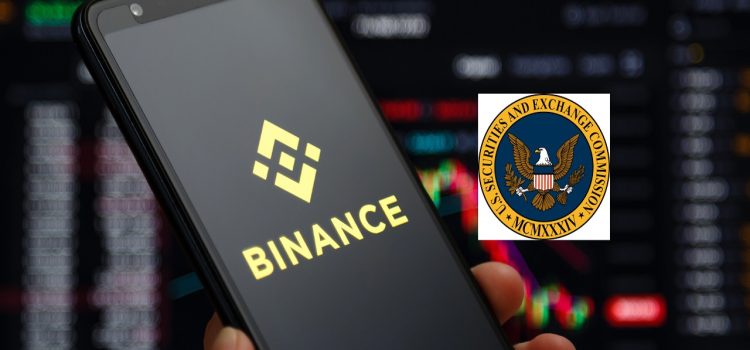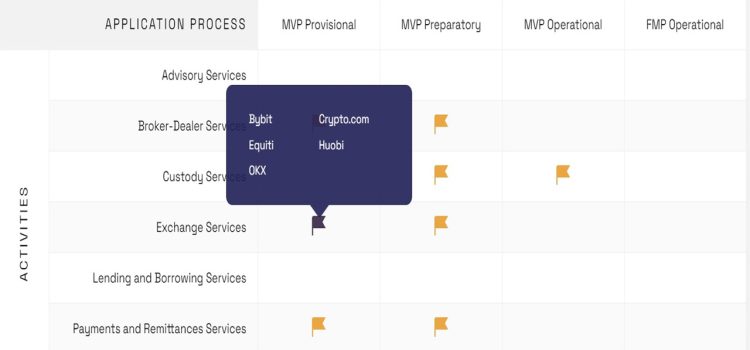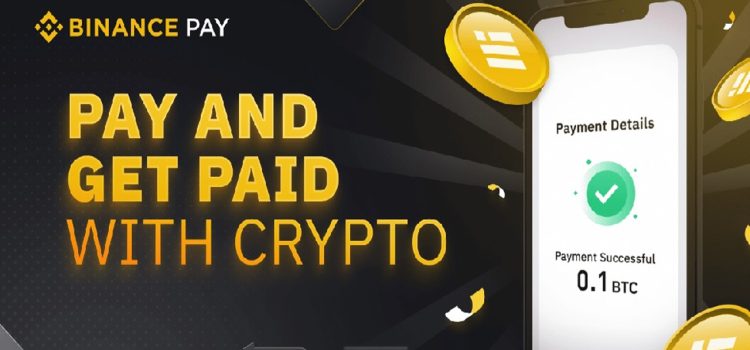In January 2023 Binance celebrated its official entrance into Bahrain. Bahrain’s crypto ecosystem has flourished with the entrance of Binance. Bahrain has witnessed a growth on all fronts, crypto exchange users, crypto payments, crypto jobs and competitive crypto offerings. Binance received its official license in October 2022.
Growth of crypto exchange users
The official license and launch of Binance in Bahrain has added to Binance’s crypto exchange users.
Binance announced that it witnessed a 34% growth in institutional business clients in MENA in Q4 2022, the highest growth for a region where Binance operates, Nadeem Ladki, Executive Director Head of BD & Partnerships, Europe & MENA at Binance told LaraontheBlock, “While I cannot go into the specific growth in Bahrain, I can confirm that we have seen a growth in users since we officially launched in October 2022.”
Even Bahrain based CoinMENA; crypto broker also saw an increase in its user base in 2022 including the period since Binance made its foray into the country. Talal Tabaa CEO and Founder of CoinMENA explained to LaraontheBlock, “Year on Year from December 2021 until December 2022, the verified users of CoinMENA from Bahrain grew by 143 percent. In specific since the entrance of Binance in October 2022, CoinMENA witnessed 5.6 percent growth up until January 2023.”
Growth Crypto vis vie Banking services
In addition to the increase in the number of newly on boarded crypto exchange clients, the country has seen more robust competitive marketing campaigns, with lower fees aimed at attracting a bigger user base as well as enhanced banking crypto relationships.
Binance holds a Category 4 license as a crypto asset service provider (CASP) and was the first exchange in the country to be granted a category four license. This meant that users could access Binance’s full range of crypto asset exchange services, including direct deposits and withdrawals in local currencies.
Yet this did not faze CoinMENA which despite being a crypto broker still espouses good relationships with liquidity partners and banks. Talal Tabbaa, CEO of CoinMENA told LaraontheBlock, “Compared to other regions, the MENA market is one of the smallest. CoinMENA, Rain & BitOasis are technically all brokerage firms. We all have to work with global liquidity partners to place trades on behalf of our users. CoinMENA can list tokens at its own discretion following the Board of Directors’ approval, but they must comply with CBB guidelines.”
After Binance entered Bahrain and in early 2023, CoinMENA announced that users could now easily deposit and withdraw crypto through bank transfers or cards in just 24 hours. CoinMENA CEO explains, “We maintain good banking relationships which is crucial to ensure the on-ramp and off-ramp services are as frictionless as possible for our users.”
RAIN crypto broker which similar to CoinMENA has a category three license in Bahrain has on some occasions compared its offering with Binance. In a tweet by one of its founders AJ Nelson in late October in reply to a comment from a client stated, “Yes we are well aware of the problems with bank transfers. We are working directly with regulators to solve. In good time we will have a solution regarding fees, have you used Rain Pro? It has 0 maker fees and tight spreads. Lower fees and pricing than Binance.”
More Competitive Marketing Campaigns lower fees
In terms of marketing campaigns to introduce better services at lower cost, Binance for its launch campaign offered 25% discount on all trading fees for Bahrain users through a link ‘ BHLive’.
In addition Binance offered the Binance Bahrain Card allowing Bahrain clients to spend cryptocurrencies in over 60 million online and physical stores.
Furthermore in December as part of its Christmas offering, Binance offered its Arabic speaking clients’ rewards reaching $1.5 million in addition to promotions. As it noted on its twitter page Binance offers 350+ crypto assets with fees of less than 0.10 percent per transaction.
CoinMENA quickly countered these marketing campaigns with those of its own. For example in January 2023, CoinMENA offered discounted card deposit fees for 48 hours again after doing so in late 2022.
As per the advert, users would pay only 2% fee on card deposits instead of 3.5%. For Bahrain’s National Day celebrations, CoinMENA offered zero trading fees for a limited time of 48 hours. The crypto exchange had also promoted prior to that a 23% off on trading fees for a specified time period.
CoinMENA offers around 30 crypto assets for trading with fees of 0.75%.
Tabaa confirms that the entrance of Binance helped to grow the crypto ecosystem in Bahrain. He stated, “Binance spends a lot on crypto marketing and this actually benefits the entire ecosystem of players.”
Growth of Crypto Payments
Crypto as a method of payment has also seen significant growth since the entrance of Binance in Bahrain. Binance partnered with EazyPay, a financial payment service provider which has a network of thousands of merchants and over 6000 terminals, to offer crypto as a method of payment while settling transactions with merchants in fiat currency.
According to Nayef Tawfiq Al Alawi, Managing Director and CEO of EazyPay, “As a regulated entity we can only work with regulated entities such as Binance. Since our partnership merchants have been more confident to get into the crypto payment scene and in terms of transactions, while people are still testing the service on average we transact $5000 worth of crypto transaction per day over 6000 terminals in Bahrain. This is really good.”
It hasn’t stopped there, In November 2022 just after Binance entered Bahrain, CoinMENA partnered with Carlton Real Estate, a Bahrain-based real estate agency that allows investors in the Kingdom to purchase real estate property using crypto assets. Under the partnership, the real estate broker would accept stablecoins like USDT and USDC.
This only exemplifies the increase in crypto as a method of payment in the country.
Growth in crypto Job market
Binance has viewed Bahrain as a key business hub which will provide areas for growth and employment within the wider industry. Currently Binance has employed 200 people in Bahrain and is continuing to hire. It has job posts for Customer Support Specialist, Senior Treasury Manager and others in Bahrain.
Even RAIN which decreased its employee base by 50% still has around 200 employees while CoinMENA has around16 employees and is also currently hiring with job openings for software engineer in January 2023 as well others.
Conclusion
Changpeng Zhao CZ in a recent tweet stated, “Bahrain is a hidden gem, super safe, very clean, well developed, good food, superb service, nice people and crypto friendly!”
While CoinMENA affirms that it has known that international players would be entering the region given the poor financial services, high fees and large unbanked population coupled with young demographic population and high smartphone penetration. To him this only shows the market is maturing and accelerating growth.
Binance in 2022, processed a whopping $65 billion in trading volume on average every day, at a speed of approximately 0.7 million transactions per second. The entrance of Binance into markets such as Bahrain has for sure added to the growth of the crypto market and ecosystem.


















